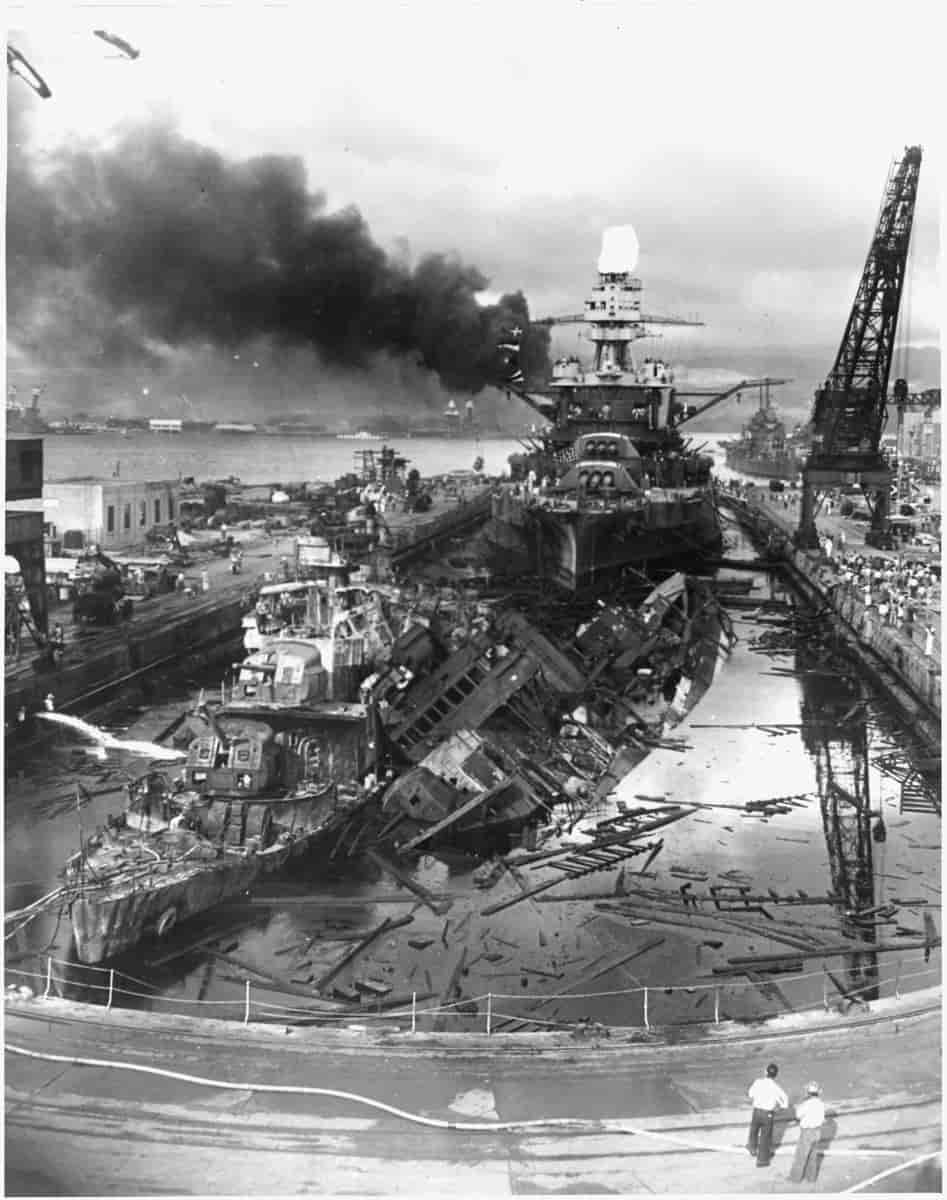Eighty-one years ago today [December 7], Japanese forces attacked Pearl Harbor, Hawaii. The attack killed 2,335 military personnel and 68 civilians. It also damaged or destroyed 19 U.S. Navy ships, including 8 battleships. December 7, 1941, was, President Franklin Roosevelt stated, a “date that would live in infamy.”
What will also live in infamy is that Roosevelt wanted the Japanese to attack the United States, so that he could achieve his objective of embroiling the United States in World War II.
Even since the attack on Pearl Harbor, there has been a running controversy over whether Roosevelt knew that the attack on Pearl was imminent and turned a blind eye to it. Regardless of how one comes out on that controversy, it is beyond any reasonable doubt that Roosevelt wanted the Japanese to attack the United States. Why, even some Roosevelt apologists praise him for this, arguing that he was a far-sighted statesman who saved America and the world from a Nazi takeover.
FDR was a crafty politician, one who was a master of political intrigue and manipulation. When he was running for an unprecedented third term in 1940, he said, “And while I am talking to you, mothers and fathers, I give you one more assurance. I have said this before, but I shall say it again, and again and again. Your boys are not going to be sent into any foreign wars.”
Roosevelt was lying. In fact, he was doing everything he could to embroil the United States in the European war.
When Roosevelt made that statement, he knew that he was playing to the overwhelming sentiment of the American people. Having experienced the disaster of World War I, Americans wanted no part of a second world war. Roosevelt knew that. He also knew that if he disclosed that he wanted the United States to get embroiled in the war, he stood a good chance of losing the election. To guarantee his reelection, he felt he had to lie.
Why didn’t Roosevelt simply send his army to attack Nazi Germany? After all, that’s what American presidents do today when they perceive a foreign threat. The answer is that this was still a period of time when U.S. presidents complied with the declaration-of-war requirement in the Constitution. It prohibits the president from waging war without first securing a declaration of war from Congress.
Given the overwhelming anti-interventionist sentiment among the American people, FDR knew that he would never be able to get Congress to issue a declaration of war against Nazi Germany, unless Germany were to attack first. In that case, he knew that a congressional declaration of war would come easily.
FDR began his machinations by doing everything he could to provoke the Germans into attacking U.S. vessels in the Atlantic. In that way, he could exclaim, “We’ve been attacked! Now, give me my declaration of war!” But the Nazi regime knew what FDR was up to and refused to take the bait.
That was when Roosevelt turned to the Pacific, in the hope that a Japanese attack on the United States would give him a “back door” to the war against Germany.
That’s what FDR’s oil embargo against Japan was all about. Japan had invaded China and was occupying the country. Its war machine necessarily depended on a continuous supply of oil. The purpose of FDR’s embargo was to prevent Japan from acquiring that badly needed oil.
FDR’s oil embargo was remarkably successful. It maneuvered Japan into a position of having to make a choice: Either invade the Dutch East Indies to secure its oil supplies or meekly withdraw its military forces from China. (As an aside, it’s worth mentioning that more recently, U.S. officials, operating through NATO, maneuvered Russia into having to make a similar choice: Either accept Ukraine’s membership in NATO, which would enable the Pentagon to station its nuclear missiles and troops along Russia’s border, or invade Ukraine to prevent that from happening.)
Not surprisingly, Japan decided to invade the Dutch East Indies rather than withdraw from China. But Japan knew that the invasion stood the risk of the U.S. Navy interfering with its operations in the Dutch East Indies. That was what the attack on Pearl Harbor was for—to knock out the U.S. Pacific fleet so that Japan would have a free hand in securing those oil supplies in the Dutch East Indies.
In other words, Japan never planned or intended to invade the United States, either at Pearl Harbor or at the U.S. West coast. They knew that they lacked the personnel, the logistics, and the supply lines necessary to undertake such a monumental endeavor. They knew that if they invaded the West coast, they would end up getting massacred.
Thus, their aim in attacking Pearl Harbor was very limited. They just wanted to knock out the Pacific fleet so that it couldn’t interfere with their invasion and occupation of the Dutch East Indies. While they knocked out several battleships and other vessels at Pearl, what they didn’t know was that the wily Roosevelt had cannily removed his aircraft carriers before the attack. That action, along with having broken Japanese military codes, enabled U.S. Naval forces to later defeat the Japanese in the Pacific.
Immediately after the Japanese attack at Pearl, Nazi Germany declared war on the United States. The U.S. Congress naturally responded with a declaration of war against both Germany and Japan. The wily Roosevelt had gotten what he wanted—U.S. entry into World War II.
This article was originally featured at the Future of Freedom Foundation and is republished with permission.







